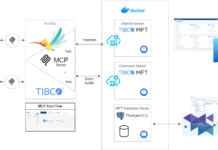
Digitalization is defined as the process of using disruptive technologies to innovate and increase business success. The introduction of Fast Data, mobile, and the Internet of Things requires organizations to go beyond automation and turn to digitalization to remain competitive.
How Does Digitalization Affect Your Workers?
The effects of digitalization on an organization can be felt in a number of ways. It will affect the focus, scope, available resources, and purpose of your business processes. Historically, automation was limited to transactions and cases, but today it’s grown to include a situational and interaction-based approach.
What does digitalization really mean for your workers? In 2009, management legend Peter Drucker predicted the changes that have become the catalyst for business digitalization:
“The most important, and indeed the truly unique, contribution of management in the 20th century was the fifty-fold increase in the productivity of the manual worker in manufacturing. The most important contribution management needs to make in the 21st century is similarly to increase the productivity of knowledge work and the knowledge worker. The most valuable assets of a 20th institution, whether business or nonbusiness, will be its knowledge workers and their productivity.”
Users are empowered by the right information at the right time, thus allowing them to create change. Knowledge workers create your company’s differentiating qualities, so it’s important to ensure they have the best data and information possible.
Moving Beyond Workflow
BPM provides cost cutting, business agility, and regulatory compliance. With process digitalization on top of these values, a business has the opportunity to increase revenue generation, enhance customer experience and satisfaction, and support active innovation.
Check out our latest e-book Digitalize! Don’t Automate and read more about ActiveMatrix BPM.





